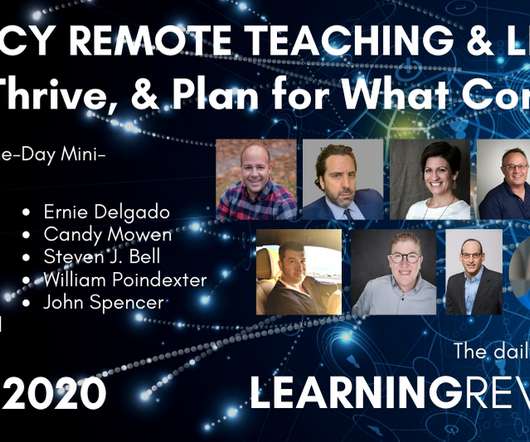The Makings (and Misgivings) of a Statewide Effort to Personalize Learning in Massachusetts
Edsurge
OCTOBER 17, 2017
Formed in December 2016 by the Massachusetts Department of Elementary and Secondary Education (MESE) and the. Kenneth Klau, Director of Digital Learning, Massachusetts Department of Elementary and Secondary Education. It implemented a 1:1 device-to-student model in its middle schools in 2009, and expanded that to high schools in 2013.















Let's personalize your content